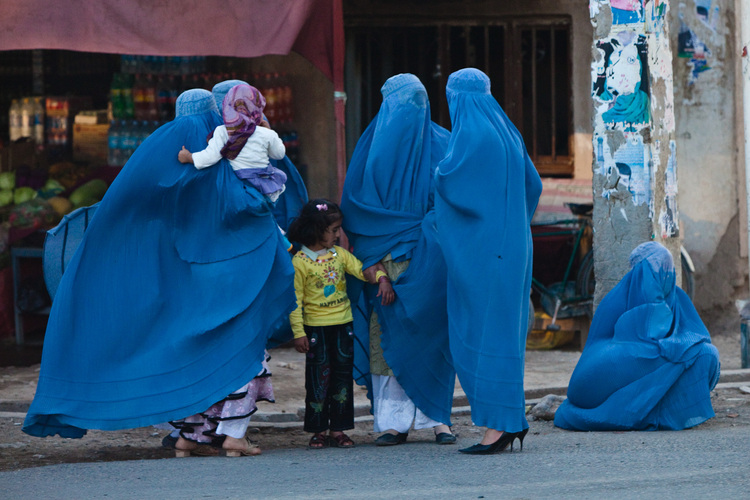BRATTLEBORO — In this Women's History Month - especially on March 8, International Women's Day - my mind and heart fill with thoughts of women and girls around the world.
Having worked globally, I have witnessed women's lives, heard their stories, seen their grief, abuse, and abject poverty. I have been at the side of women when they gave birth or lost a baby, strong and stoic, and watched more fortunate women advocate for, educate, and comfort their poorer village friends.
Whether nurses, NGO workers, politicians, or change agents within their communities, they do what they can. It's never easy, especially when women's lives are so devalued in so many places.
Among the women I've had the opportunity to share time with or whose lives I've witnessed in their impoverished homes and inadequate health centers (if they have one), I recall the patience of African mothers, babies on their backs, in the marketplace, where they eke out a subsistence life selling fruits and handicrafts. I've heard their stories of violent abuse by husbands, their wishes that their children could be educated, their genital cutting, the fistulas that isolate them.
I've marveled at the places they live - slum houses with dirt floors swept clean every day in Bangladesh, and Somali tent shacks made of rags and tarps.
I've wept to see young women - girls, really - on the arms of old foreign men in Thailand so they can send money back to their village families.
I've heard the stories of trafficked women and girls who made it to a Greek refugee camp.
And still the images keep coming, along with knowing what is happening in countries I've not been to.
I think of the courageous women in Iran, incarcerated and tortured in Evin Prison, so willing to die for freedom; Kurdish women who fight on the battlefield; Rohingya women who suffer unimaginable abuse.
I think of Palestinian women who bury their children and watch as their houses are torn down, and Ukrainian women who risk rape or death by staying in their demolished apartments.
I think of American women who are losing their right to bodily autonomy, privacy and agency over their own lives. I think of Black women who suffer maternal mortality and poor health outcomes at shockingly higher rates than white women. I think of how afraid transgender women and LGBTQ women must be.
* * *
I try to imagine what it would be like to be a 20-year-old young woman in Afghanistan. She never knew what living under Taliban rule would mean and now has no job (unless she is a rare exception in the health sector), no chance of higher education, no right to walk outdoors freely. She must fear retaliation if she inadvertently shows a bit of ankle.
I think of this young woman's mother, who did know Taliban rule and is now being smothered again in blue burqas, stripped of meaningful employment. And I think of the grief those mothers feel knowing that their young daughters will never get past sixth grade.
For all of them, the future is bleak, lonely, and frightening. These kinds of restrictions are the stuff of suicide.
It's understandable. Women in Kabul have endured beatings for protesting their ban from schools, work, and even walking in parks on certain days. They are restricted from traveling alone, and they suffer deeply from the isolation of gender segregation, boredom, and being rendered invisible by Taliban rules.
As a story in a story in The New Yorker pointed out in 2021, “Women are hidden in their homes from puberty until they are grandmothers, concealed from the world at large, and especially from journalists.”
In a news report from the United Nations, one woman who remembered the previous Taliban rule recalled that a child she knew had been married off when she was 11 years old. On Aug. 15, 2021, the day the Taliban came back into power, “Something died inside me,” she said. “Something died inside me on 15 August 2021, or at least that is how I felt: my hopes crushed, my education irrelevant, my investment in Afghanistan gone.”
“Thousands of women used to work for ministries across the country,” she continued. “Now, some of them have to line up for a bag of flour to feed their children.”
“Violence at home is now normalized and some women are committing suicide - the last resort when their situation becomes unbearable,” she said.
* * *
Who among us living in affluent countries and not in nations run by deranged dictators or regimes can imagine this kind of torment, or the consequences of living an entire life in abject poverty and exclusion, with all the attendant deprivations and abuses? How do we begin to understand such punishing patriarchies and their cruelty?
How insufficient one month or one day a year are to remember the world's women, to see them as human beings worthy of dignity, purpose, meaning, and respect for the unimaginable burdens they carry.
And yet there is that - a month, a day every year to recognize that nearly 400 million women globally were living in poverty last year, according to UN Women, and that figure is expected to rise.
Add to that staggering figure the political repression women all over the world are suffering.
The least we can do is pause, reflect, and honor the lives of women everywhere.
